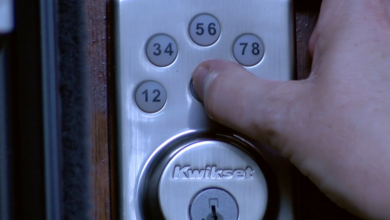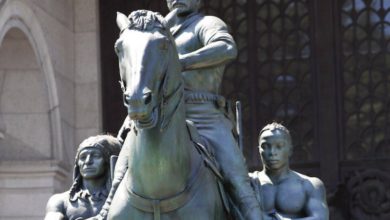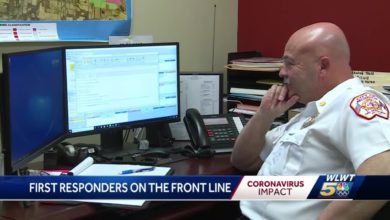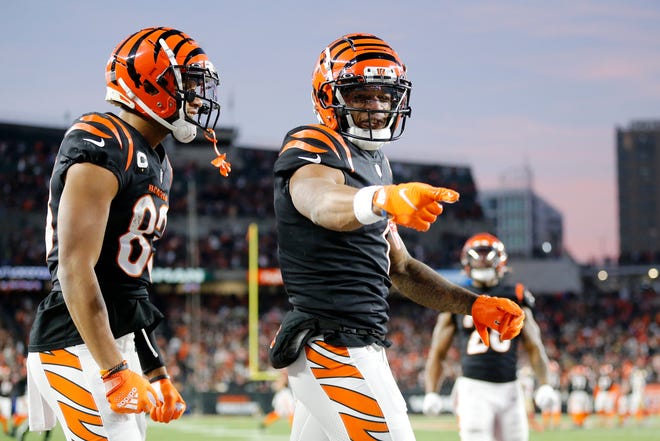WASHINGTON – President-elect Joe Biden will be inaugurated on Jan. 20 at 12 P.M. ET, becoming the 46th President of the United States.
But it won't be the typical inauguration, for several reasons.
The ongoing coronavirus pandemic and fresh security concerns following a pro-Trump mob breaching the Capitol last week have combined to force some changes to what is a historical American day.
Most of the events surrounding Biden's swearing-in will be virtually focused.
Here's what you need to know:
What will the day look like?
CNN reported that Biden will arrive at the nation's capital the same way he did for decades as a senator: The Amtrak train.
Biden’s affinity for Amtrak is well-known because of his daily commute for 36 years between Wilmington and Washington, D.C., while serving as a senator from Delaware. The railroad estimated he had traveled 2.1 million miles on its rails.
He will still be sworn in on the steps of the Capitol Building. Despite fears that pro-Trump rioters would return to Washington, D.C., on Inauguration Day, Biden insisted he would proceed with his swearing-in ceremony as planned.
“I am not afraid to take the oath outside," he said Monday.
Biden and Vice President Kamala Harris will then lay a wreath after they take the oath of office and conduct a Pass in Review inspection of the troops at the Capitol. They will be joined by their partners, Dr. Jill Biden and Doug Emhoff.
The Bidens will receive a presidential escort from 15th Street to the White House after his swearing-in on the West Front of the Capitol. The escort will include representatives of every branch of the military, including the U.S. Army Band, a Joint Service Honor Guard, and the Commander-in-Chief’s Guard and Fife and Drum Corps from the 3rd U.S. Infantry “The Old Guard.”
What is different this year?
Biden's inauguration, and the traditional events surrounding it, will be a scaled-down event because of the health risks posed by the coronavirus pandemic.
Tickets to the swearing-in ceremony are limited, parade viewing stands have been dismantled near the White House to discourage crowds, inaugural balls have been canceled, and health officials are urging people not to travel and attend.
Instead of thousands of people gathering on the National Mall for the festivities, the traditional parade down Pennsylvania Avenue will be replaced by a virtual parade that will be televised, the Presidential Inaugural Committee announced.
The parade will celebrate America’s heroes, highlight Americans from all walks of life in different states and regions, and reflect the country’s diversity, heritage and resilience, inaugural planners said.

Inauguration Day will consist of virtual events, according to Biden's inauguration website, that mirror the format and style of the virtual Democratic National Convention this summer.
More:Less pomp and circumstance? Biden inauguration likely to be scaled-down affair in response to COVID
'America United' theme
The theme for the event will be “America United,” an issue that’s long been a central focus for Biden but one that’s taken on added weight.
In an announcement shared first with the Associated Press, the Presidential Inaugural Committee said that the theme “reflects the beginning of a new national journey that restores the soul of America, brings the country together, and creates a path to a brighter future.”
Heightened security following Capitol breach
Less than a week after a violent mob stormed the Capitol in a deadly security breach, the Secret Service expressed confidence Monday in a sprawling plan to secure the presidential inauguration, describing it as a "zero fail mission."
Five people, including a U.S. Capitol Police officer, died as a result of last week's violence when attackers, many of them armed and waving flags in support of President Donald Trump, rushed the Capitol where lawmakers were formally confirming Biden's victory in November's election.
Michael Plati, the agent leading the effort, vowed a "robust ... presence" of law enforcement and National Guard, along with a layered network of fencing and vehicle checkpoints to repel potential threats.
'A zero fail mission': Secret Service vows 'robust' inauguration security after deadly Capitol siege
The FBI has warned authorities of the possibility of armed demonstrations on Inauguration Day, Jan. 20, in Washington and in state capitals in the run-up to the swearing-in of the new president, according to an official with knowledge of the matter.
DC Mayor Muriel Bowser extended a citywide emergency declaration through the day after the inauguration, explaining the “motivation [of those who stormed the Capitol] is ongoing.”
Bowser also said she requested that the Department of the Interior, which oversees the National Park Service, cancel and deny any public gathering permits through Jan. 24.
Trump on Monday declared a preemptive emergency in Washington, D.C., for the inauguration of his successor, a move that will allow local officials to more quickly draw on federal resources if they are needed to keep the peace.
The emergency declaration will allow the Department of Homeland Security to coordinate disaster relief and to provide assistance for emergency measures “to lessen or avert the threat of a catastrophe in the District of Columbia,” the White House said.
More:DC, statehouses beef up security as possibility of violence looms ahead of inauguration
Who will attend/won't attend?
Trump stated that he will not be attending Biden's inauguration, breaking with more than 150 years of tradition. Vice President Mike Pence will attend.
“To all of those who have asked, I will not be going to the inauguration on January 20th,” he announced on Twitter before his account was permanently suspended.
Former presidents Barack Obama, George Bush and Bill Clinton, and former first ladies Michelle Obama, Laura Bush and Hillary Clinton are expected to attend.
More:Trump announces he'll skip inauguration, Biden said he'd be 'honored' to have Pence there
Politics updates: Pence to attend Biden’s inauguration on Jan. 20
Former president Jimmy Carter, who is 96, announced that he will also not attend. This is the first time he has missed an inauguration since his own, which took place in 1977.
Contributing: John Fritze, Michael Collins, Kevin Johnson, Tom Vanden Brook, USA TODAY; The Associated Press
Source link










